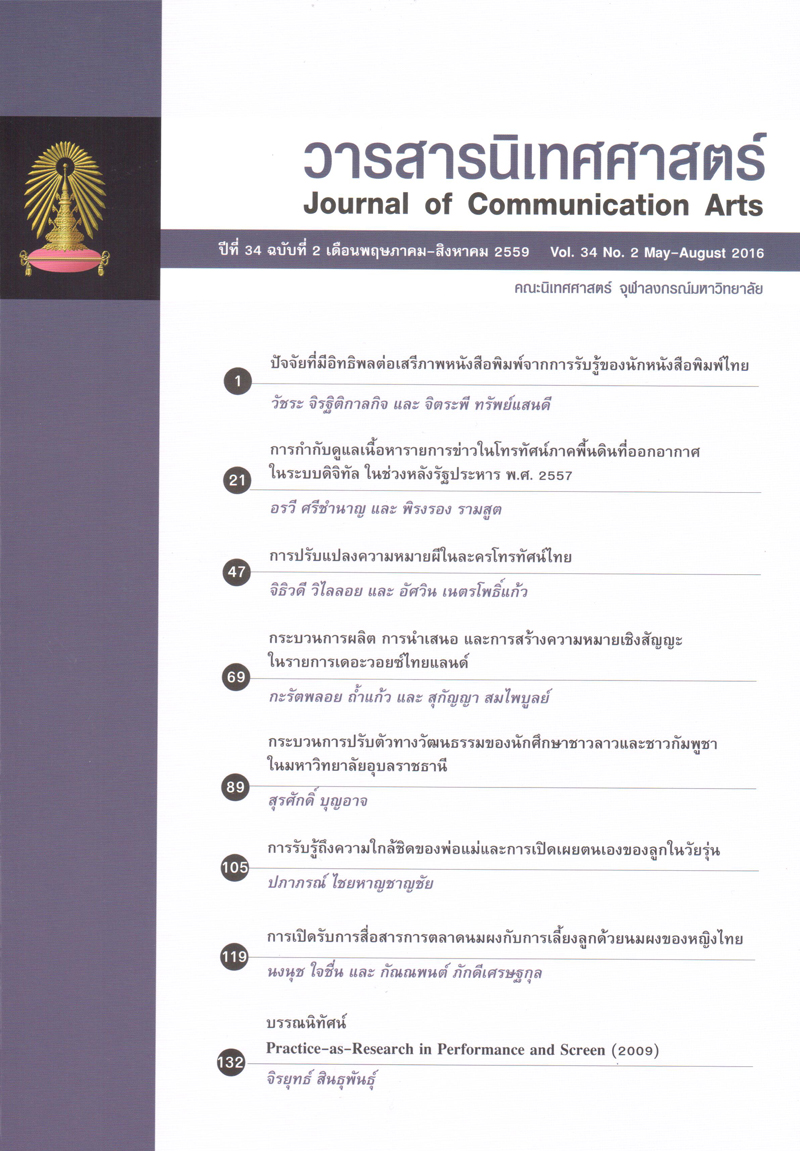การรับรู้ถึงความใกล้ชิดกับพ่อแม่และการเปิดเผยตนเองของลูกในวัยรุ่น
Main Article Content
Abstract
Perceived Closeness and Self-disclosure in Adolescents
This conceptual paper aimed to propose a conceptual framework of the relationship between perceived closeness and self-disclosure in adolescents. The framework was developed from related theories, including operant conditioning theory, communication privacy management, social penetration, and expectancy violation theory. Whereas infants and young children form strong bonds with their parental figures, it can be observed that during adolescent years, attitudes routinely change, leading to a wider rift in parent-child relations. This distance can be attributed to a flaw in communication between parent and child. Previous studies have shown that positive mental health development in children can be closely linked to a strong foundation stemming from their home environment. Family relationships also play a vital role with regards to the forming other relationships, such as friendships and romantic relationships. In order to maintain a positive relationship an adolescent must perceive closeness and warmth from their parents. In addition, perceived closeness can encourage a deeper relationship and thus self-disclosure in the parent-adolescent relationship.


